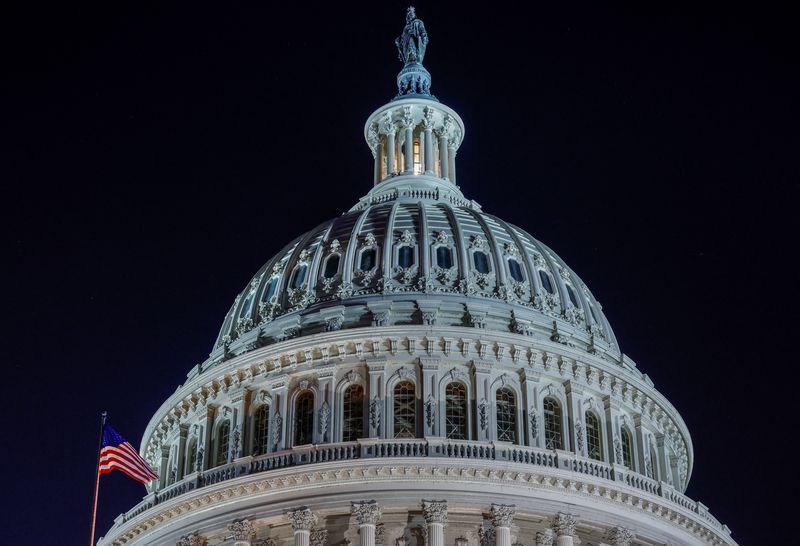By Jason Lange
WASHINGTON (Reuters) - Neither President Joe Biden's Democrats nor Republicans in Congress emerged as a clear winner in the battle to raise the $31.4 trillion debt ceiling, according to a new Reuters/Ipsos poll.
The survey, conducted after Congress passed a bipartisan deal to raise the borrowing limit, found that 50% of Americans thought neither party emerged as a winner, while another 20% said both sides won.
Another 20% said they thought Democrats emerged with the better side of the deal, while 11% said Republicans had done better, according to the four-day poll which concluded on Monday.
The poll found self-identified Democrats were more likely to be satisfied with the outcome. Some 80% of Democrats liked how President Joe Biden handled their side's end of the talks, while just 13% took a dim view of Biden's performance.
By contrast, only 44% of Republicans approved of how their party's top congressional official, U.S. House Speaker Kevin McCarthy, drove the bargain for Republicans. Forty-two percent disapproved.
McCarthy's poor marks reflect the deep divisions within his party. Hard-line Republicans who sought deeper government spending cuts in the talks have warned that McCarthy's job could be in danger.
Biden and McCarthy reached a deal last week to suspend the debt ceiling weeks of negotiations between Biden's White House and Republicans who control the House of Representatives.
Biden signed the deal into law on Saturday, averting the financial disaster that would have unfolded if Washington were forced to stop paying all its bills.
Politicians on both sides have presented the deal as a victory, with Republicans touting a reduction in non-military spending. Biden said the compromises in the deal were a sign the polarized nation could bridge its political divides.
Critics of the deal on the right said the cuts did not go far enough, while progressives criticized increased work requirements for struggling Americans receiving food or monetary assistance and provisions streamlining approvals for fossil fuel projects amid a climate change crisis.

The deal would cut spending by $1.3 trillion, less than the $4.8 trillion Republicans had sought. It does little to slow growth in federal debt that is on pace to exceed $50 trillion in a decade.
The Reuters/Ipsos poll surveyed 1,004 U.S. adults nationwide and had a credibility interval, a measure of precision, of about 4% in either direction.